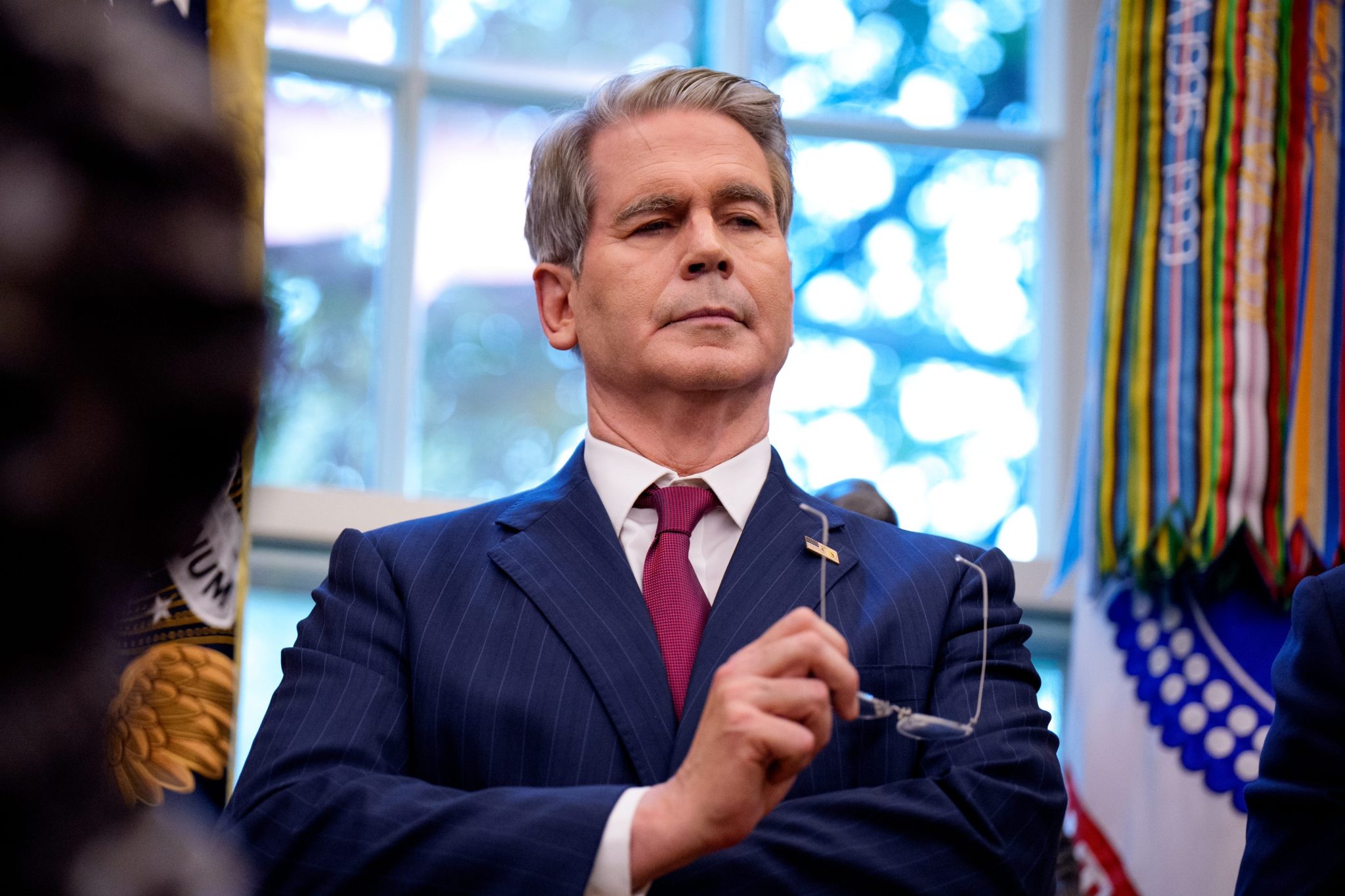
- Treasury Secretary Scott Bessent praised Argentine President Javier Milei as a “beacon” for South America, saying the U.S. will back his economic overhaul through a swap line but not direct funding. Bessent framed the move as a strategic interest to prevent another failed state in the region, while hinting Milei’s reforms could inspire neighbors like Bolivia and Ecuador. Yet markets remain skeptical—Argentina’s peso and bonds have continued to slide, with UBS’s Paul Donovan noting investors view Washington’s support as symbolic rather than transformative.
Treasury Secretary Scott Bessent described Argentina as a “beacon” for South America, saying its leader, President Javier Milei, is doing a “fantastic job” of reversing decline in the country. And Bessent hinted that he hoped the turnaround of Argentina—with the White House’s help—may cause a ripple effect throughout the region.
The U.S. government has been clear that it will support Milei—though has stopped short of putting its hand into its own coffers to boost Argentina’s economy. In September, Bessent wrote on X that “all options for stabilization are on the table,” suggesting that swap lines, direct currency purchases, and purchases of U.S.-dollar-denominated government debt from Treasury’s Exchange Stabilization Fund were all possibilities. “Opportunities for private investment remain expansive,” he added.
A matter of weeks later and Bessent has narrowed the scope, telling CNBC in an interview yesterday that the U.S. is providing a swap line, adding, “We are not putting money into Argentina.” A swap line is a standard agreement between two central banks to exchange currencies, to stabilize financial markets in one or both nations because it guarantees sufficient supply of a foreign currency. At a given date the swap is reversed. Given the fact that the U.S. dollar is the global currency, this adds a significant safety net to Argentina’s economy.
Bessent made America’s motivation to support Argentina clear: “What we’re doing is maintaining a U.S. strategic interest in the Western hemisphere.
“America First doesn’t mean America alone,” he added to CNBC—referencing a warning from JPMorgan CEO Jamie Dimon, who noted the U.S. may isolate itself because of President Trump’s foreign policy rhetoric. Bessent added: “Look, when you have a failed state in South America like Venezuela, now we are having to track down and blow up these cartel ships. So … you don’t want to create another failed state.”
He continued: “Many of the governments down there moved from far left to center right. We did not support them, and then they took a hard lurch to the left.” Describing Argentina—now run by Milei on the right of the political spectrum—as a “beacon,” Bessent added there’s “a chance now for many other countries to come along, Bolivia, Ecuador, I think Colombia after the elections.
“What you don’t want are these failed economic models,” he added. “And Argentina has 100 years of decline, and President Milei is working against history, and he’s done a fantastic job … What’s encouraging in Argentina, it’s the young people who made the decision not to impoverish their nation.”
No real conversion
Despite the lifeline from the world’s biggest economy, traders have yet to be convinced of Bessent’s belief that Milei can “continue advancing Argentina’s positive economic momentum.”
A little over a week after Bessent announced his pledge to back the nation, traders drove the price of the peso down against the dollar with Bloomberg reporting that the domestic government had been forced to sell dollars in order to stem the slump. Meanwhile, Argentine dollar bonds due in 2035 were down to 51.45 cents this week, marking a six-day decline.
As Paul Donovan, UBS’s chief economist, noted to clients this week: “Bessent’s parody of ‘whatever it takes’ has been met with a collective ‘whatever’ from foreign exchange dealers.” He explained: “With Argentina supplying China with soybeans, enabling China to avoid buying soybeans from U.S. farmers, the politics of direct U.S. assistance to Argentina is complicated.”
Some of those wrinkles are likely to be ironed in out meetings over the coming days, with Bessent having confirmed that Argentina’s economics minister, Luis “Toto” Caputo, will lead a delegation to Washington, D.C., “to meaningfully advance our discussions in person regarding options for delivering financial support.”
Writing on X, Bessent added yesterday: “During the course of yesterday’s discussions with my G7 Finance Minister colleagues, I emphasized the importance of the success of President Milei’s economic policies for the people of Argentina, for the region, and for the G7.”







